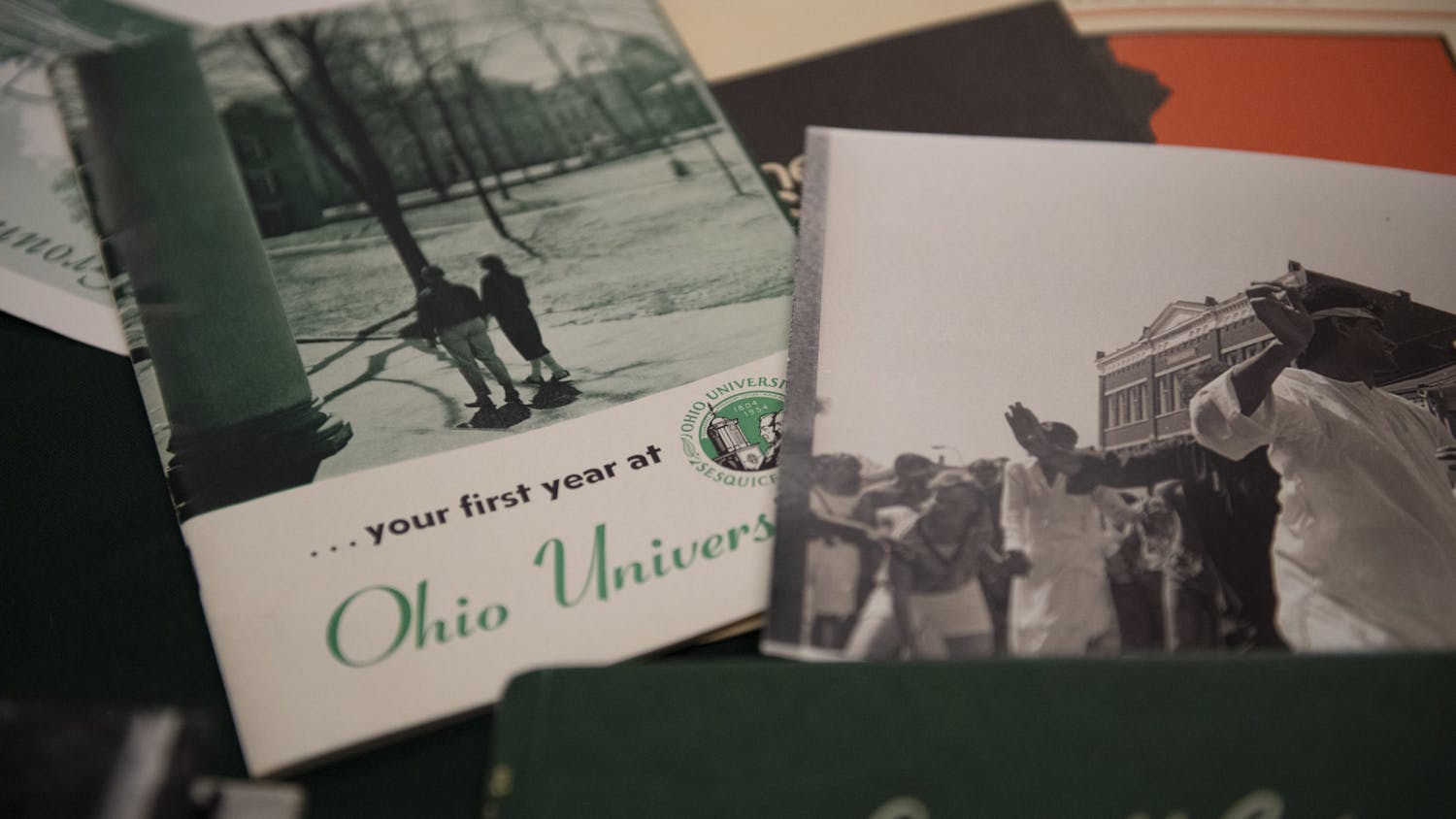Orlando Bloom’s Romeo in David Leveaux’s Romeo and Juliet looked as if he popped out of an advertisement for Urban Outfitters.
Clad in ripped jeans, a T-shirt and a hoodie, Bloom made his Broadway debut riding a motorcycle onto the stage of the William Shakespeare adaptation.
Leveaux’s version, which ran on Broadway from September to December 2013, is only one of the countless adaptations of Shakespeare’s 38 plays.
Though there are plenty of opportunities to drastically change Shakespeare’s works, Ohio University’s Shelley Delaney said she is doing As You Like It essentially as the Bard of Avon wrote it — but with a few minor tweaks. The play opens in the university’s Forum Theater next week and is the final Division of Theater mainstage production of this academic year.
Renovated works can take Shakespeare’s language and perform it with their own flair — such as Joss Whedon’s Much Ado About Nothing, which uses the play’s original dialogue in a modern setting. They can also reimagine the work entirely — such as 10 Things I Hate About You, which takes the plot of The Taming of the Shrew and places it within the confines of a high school drama.
“It’s always happened to Shakespeare,” said Samuel Crowl, trustee professor of English. “When the theater came back in the 1660s (after the Puritans had squashed it in their revolution) and the crown was restored, almost immediately, Shakespeare was back on the stage but almost immediately, he was adapted. … Shakespeare’s day is not savvy of being historically accurate. … That’s always given liberty to modern directors to dress him as they wish.”
Baz Luhrmann placed Romeo and Juliet in a modern-day beach location, The Lion King is a version of Hamlet, and Shakespeare in Love is a fictional piece about Shakespeare’s process of writing Romeo and Juliet that also includes several references to his later work.
“It keeps his work alive,” said Loreen Giese, professor of English. “It keeps people interested.”
For Delaney’s As You Like It production for the Division of Theater, she said she wants to make Shakespeare’s work clear in order to encourage the audience to enjoy Shakespeare and to be invested in the story.
“When people come to see Shakespeare, they want to see Shakespeare,” said Delaney, associate professor of theater and head of performance. “We cut things that are arcane or references that we don’t understand anymore. We trimmed to make it clearer and accessible.”
As You Like It tells the tale of Rosalind, a duke’s daughter, who flees her uncle’s court after he usurps her father. As in most of the Bard’s comedies, characters’ lives intertwine along the way and romance ensues.
The sheer number of adaptations and renovations of Shakespeare’s work that continue today are testament to his works’ relevance and the fact that his ideas remain resonant for all time, Delaney said.
“The plays are not reduced to one cultural instance,” Giese said. “Richard II is about what to do with a ruler who is inefficient and incompetent. Look at what is happening in Egypt, the Ukraine or Syria. How do you depose a corrupt or incompetent ruler? … It is a question that still speaks to us today.”
One of the most relevant of all his ideas is the continual analysis of the human condition.
“He gets at the sort of full, incredibly rich, crazy canvas of the human condition, human emotions and human psyche like nobody else,” Delaney said. “Then it’s given brilliant and incisive language to carry out those ideas. … There’s a fearlessness of exploring us at our most extremes … (such as) exploring jealousy until it consumes you. … Too often entertainment plays to our lowest common denominator.”
On April 23, Shakespeare will celebrate his 450th birthday. Though there are sure to be festivals around the world commemorating the landmark day, Delaney said Shakespeare is so much in our conscious that we celebrate his work every day.
“It’s as (Shakespeare’s contemporary) Ben Johnson remarked,” Crowl said. “‘He was not of an age, but for all time.’”
@buzzlightmeryl
mg986611@ohiou.edu






